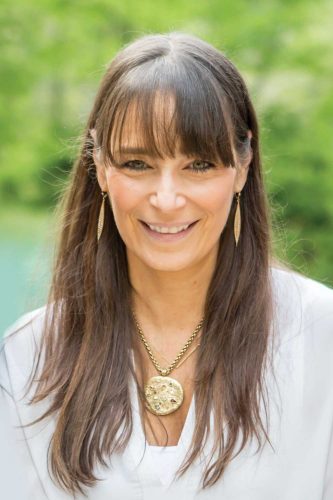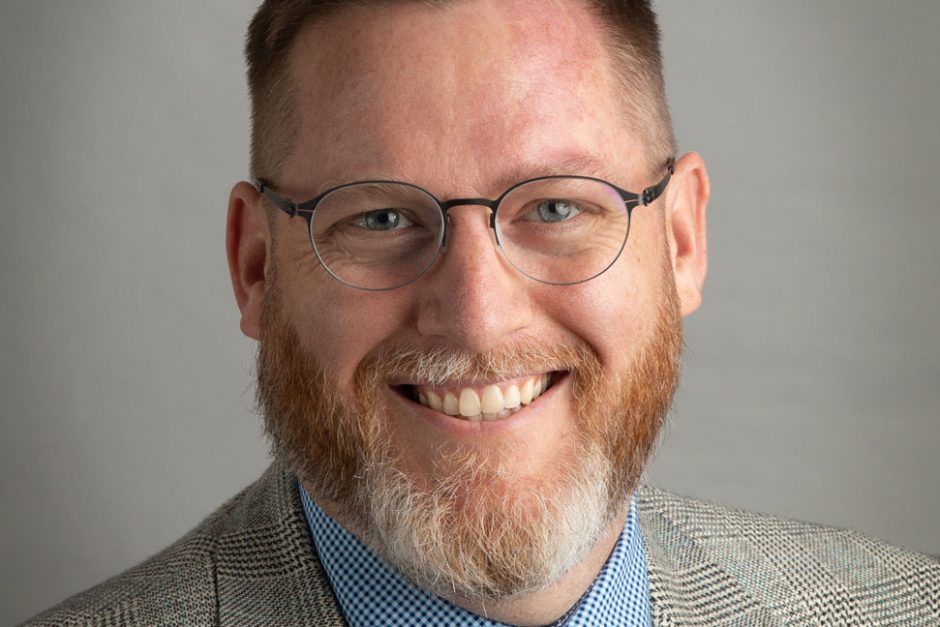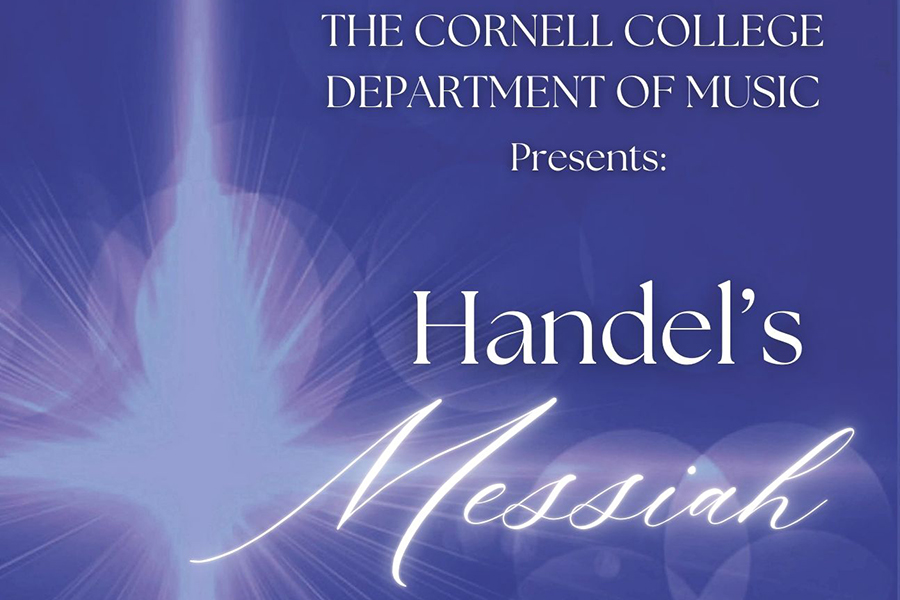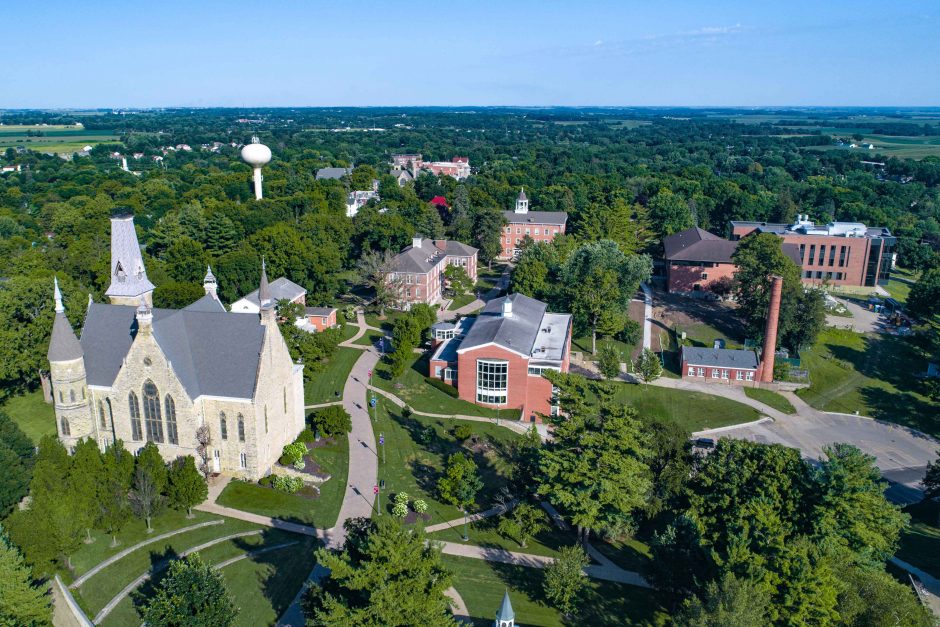Posse founder: Cornell is a ‘warm community’
The idea for the Posse program came to founder and Posse Foundation President Deborah Bial in 1989 while she was a youth counselor in New York City. When she asked one of the students why he had dropped out of college, he told her he would have stayed in school if only he had his posse to support him.
Bial started her foundation to create posse support groups for students, with a selection process focused on urban students who might otherwise be overlooked by traditional admissions processes.

Together with the nation’s top liberal arts institutions, Posse is building a leadership network that better represents the voices of all Americans. In 2007 Bial was awarded a MacArthur “Genius” Fellowship for her work.
The Cornell Report spoke with Bial to find out how Cornell was chosen as a partner and how the program benefits not only the scholars but also the Posse colleges.
What did you see in Cornell College that made it a good fit for Posse?
Deborah Bial: We partner with the top-ranked institutions of higher education in the U.S., looking at the top 150 liberal arts and research universities. We care that you care, as an institution, about equity and inclusion and diversity and leadership, and that you understand how important it is to connect that to merit. Maybe the most important thing is that the president of the institution not just buys into it but really invests in it. And [Cornell College President] Jonathan Brand did that from day one. Honestly, he’s a wonderful person. He’s warm, he’s caring, he invests in the students, and you can see that manifested in how he interacts with them—having dinner with them, hanging out with them on campus, just being optimistic and believing in them so much, and I think that affects a community. The leadership of the president is very important, and Jonathan has demonstrated that and then some and is a really good partner.
And really your whole team is great. It’s a warm community at Cornell. We’re sending incredible students to Iowa, and they’re coming from unlikely places like Puerto Rico, so you want that community to be warm and welcoming and it is at Cornell. With Jonathan Brand and his team at Cornell, we’ve felt very good about the partnership.
What do you mean by merit?
Deborah Bial: We just had a Supreme Court decision that effectively banned the use of race in college admission, and there’s no more affirmative action in that respect. Posse stands apart because it’s a merit program. For so long people have associated diversity with deficit. It should be the exact opposite. It’s not the young people we’re trying to fix, it’s our systems and our infrastructure and our policies and those things that have kept people out because we’ve been too narrow in the way we’ve defined merit. With Cornell and Posse together, we’re really investing in leadership and an idea of merit that looks beyond test scores and instead considers the many different qualities that make a student a good fit for a top school.
There’s one thing that people sometimes get wrong–they think of Posse as a program for racially or ethnically marginalized students, or those at risk of not reaching their full potential. It’s not that. Each year we interview 17,000 students from different backgrounds, and this year our schools picked 900. It’s very selective. While it’s nontraditional and we care about getting diverse groups—more than 50% are first-generation, 80% of them identify as students of color, and most are from the lowest economic quartile—we don’t screen for these qualities, and we ask our institutions not to screen for them either. It truly is a merit leadership program, which makes a big difference and is so important in this day and age.
What kinds of benefits have you seen over the years for Posse partner campuses?
Deborah Bial: A number of years ago we interviewed Posse mentors and published a mentor report. Many of these mentors say this might be the single most important thing they did in their career. And these are incredible professors, very serious people who are doing research. But they’re taking time to not just work with Posse Scholars and support them but to become part of a community of mentors across the country and deepen the way they think about diversity and equity and inclusion. We have a training program for mentors. They come to New York with faculty mentors from all of our other schools. We talk about leadership and merit, diversity and equity, and how to support students and support them in their leadership pursuits. And imagine every year you’re getting a different faculty member and you’re beginning to build a community on your campus who are not just trained in understanding DEI but who are participating in the program and in community building—what we call integrated diversity.
For many years we thought about racial and ethnic diversity as a siloed thing where people would be in their groups defined by race. A lot of schools would put all the programs for students of color under one person. What you do when you begin to partner with Posse is you begin to build a community of faculty, administrators, and staff who all invest in building a community of integrated diversity, a community that embraces relationships across similarities and differences. And so I think that’s a huge benefit that a college gets when they partner with Posse.
There are now more than 13,000 Posse Scholars and alumni who have more than $2 billion in support. They graduate at a rate of 90%, and they’re getting the Cornell alumni network, and they’re getting the Posse alumni network.
What is the larger impact?
Deborah Bial: When you join this network of Posse institutions, you are contributing to the fabric of American society in a powerful way. I think about these really, really complex times we’re living in—very connected to race and gender and religion and class and how it intersects with politics—and we need leaders who come from different backgrounds, who can take on positions of influence and power and be sensitive and caring and understand that there are many voices that need to be part of the process. So when Cornell College becomes part of the Posse community, it’s part of the solution to that very big challenge that we have. Because, right now, we don’t have leaders who represent the diversity of the American population. The United States Senate is almost 90% white, and a quarter of our senators are women. And you look at industry Fortune 500 CEOS or partners in law firms, it’s still a very homogeneous group of leaders. And you need everybody! When you have diversity in the room you make better decisions.
➤ Read the full Posse series, with profiles of four Posse Scholars and a Q&A with the president



